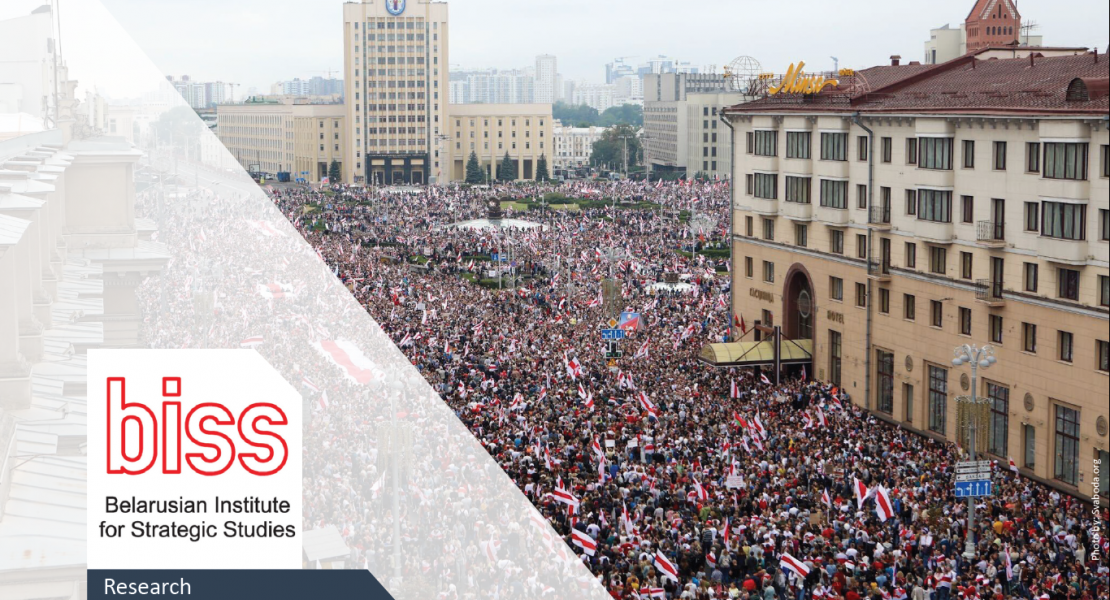The global time of democracy has slowed down. But there are still chances for change in Belarus
Why have the 2020 protests not overthrown the Belarusian regime? Will there be changes in Belarus in the near future? What awaits the protest movement? What are the chances for democratization? ...and the risks of a new autocracy after the possible exit of Alyaksandr Lukashenka?
Over the last 70 years, there have been about 480 cases of authoritarian rulers’ exits (i.e. overthrow, death or resignation). In 45% of cases, these exits resulted in a regime change. In about half of the latter cases, the authoritarian regime was replaced by a democratic one. These processes were caused by various factors, or rather, various configurations of factors: from international, through socio-cultural and economic to situational ones. No single factor or configuration of factors guarantees a systemic political change.
The main purpose of this research is to identify factors that are relevant to political transformation in Belarus.
This research paper consists of two parts. The first is devoted to diagnosing the current state of the Belarusian autocracy. We apply the (slightly modified) model of authoritarianism of the German political scientist Johannes Gerschewski. He identifies three pillars of autocracy: legitimation, repression, and co-optation of elites. Two additional factors of stability/instability of an autocracy were also considered: the party of power and the international context.
In the second part we explore the factors of system change. We distinguish five categories of these factors: axiological, structural, tactical, international and black swan factors. We analyse not only the preconditions of changes, but also their probable direction in the medium- and long-term perspective, namely: (1) How is factor F relevant to the collapse of the Belarusian autocracy? and (2) How is F relevant to democratization in case the autocracy falls?
The practical goal of this research is to equip champions of the democratization of Belarus with sound knowledge of weak and strong points of the Belarusian regime as well as risks and advantages of particular options. Another important goal is to help avoid serious ethical errors. Although ethical expertise was beyond our purview, an analysis of different options will help proponents of democracy to determine the ethical framework within which the struggle for the democratic future of Belarus must take place.
Findings
- From 2020 onwards, procedural (electoral) legitimacy is one of the most vulnerable points of the Belarusian regime. Another vulnerability is the economic component of the social contract.
- The regime still enjoys some advantages in the field of ideological legitimacy. The protection of ‘traditional values’, friendship with Russia and the cultivation of Soviet heritage—these issues are important for Belarusian society and they are still monopolized by Lukashenka.
- If the autocracy falls, Belarus has a strong chance of successfully transitioning to democracy. This is because of the following: the decline of paternalistic attitudes in favour of personal responsibility, a growing faith in one’s individual powers, a growing level of education, an experience of self-organization and horizontal interaction, middle class growth, the absence of serious regional, religious or ethnic conflicts, and low inequality.
- There are at least two factors that negatively affect both the chances of abolishing the autocracy and the chances of transition to democracy: weak national identity and predominantly Russian socialization of Belarusian elites.
- One characteristic feature of the Belarusian situation is the low level of pro-authoritarian mobilization. Supporters of the regime grew active in 2020, but their activism still lagged far behind the pro-authoritarian mobilization in Turkey in 2013 or in Poland in 1980-81. This will play a role in the next stages of political developments in Belarus.
- The mobilization of the protest movement in 2020 has had, and will have, a significant impact on regime loyalists. For them, regime support is no longer a ‘default’ option, and they are beginning to re-assess the benefits and costs of such support.
- The Kremlin counts on the emergence of a powerful pro-Russian political force in Belarus, which will either exercise power in a new authoritarian format or at least compete with others in a semi-democratic format. As long as this does not happen, the Kremlin will support Lukashenka.
Contents
Introduction
Basic assumptions and methodology
Part One. The architecture of a skewed authoritarianism
Belarus as compared to other existing autocracies
Gerschewski’s model
Legitimation (General patterns. Metamorphoses of legitimation of the Lukashenka regime)
Repression (General patterns. Short-term success of 2020-2021 repressions)
Co-optation of elites (General patterns. Belarusian elites: the problem is not loyalty, but its constancy)
Party of power (General patterns. Belarus: the absence of a party of power is a risk factor)
International context (General patterns. Belarus: the struggle for democracy without external incentives)
Typical circumstances of the collapse of autocracies (Statistics of the post-war period. Belarusian regime: in what circumstances can it collapse?)
Conclusion of part one
Part Two. Two transformations
Value preconditions (Prevalence of values of an open society. National identity. Education of the population. Experience of cooperation and dialogue. Synopsis of value factors)
Structural preconditions (Strong middle class. Socio-economic inequality. State stability. Synopsis of structural factors)
Tactical preconditions (Pro-democratic mobilization. Non-violent vs violent struggle. Experience of decentralized action. Synopsis of tactical factors)
International preconditions (International identity and socialization of state officials. Globalization, international sanctions and support. Two possible scenarios of Russia’s behaviour towards Belarus. Synopsis of international factors)
Lottery factor (Shocks and crises. Death of an autocrat. Autocrat’s mistakes and situational triggers. Black swans of the Belarusian regime. Synopsis of lottery factors)
Conclusion

